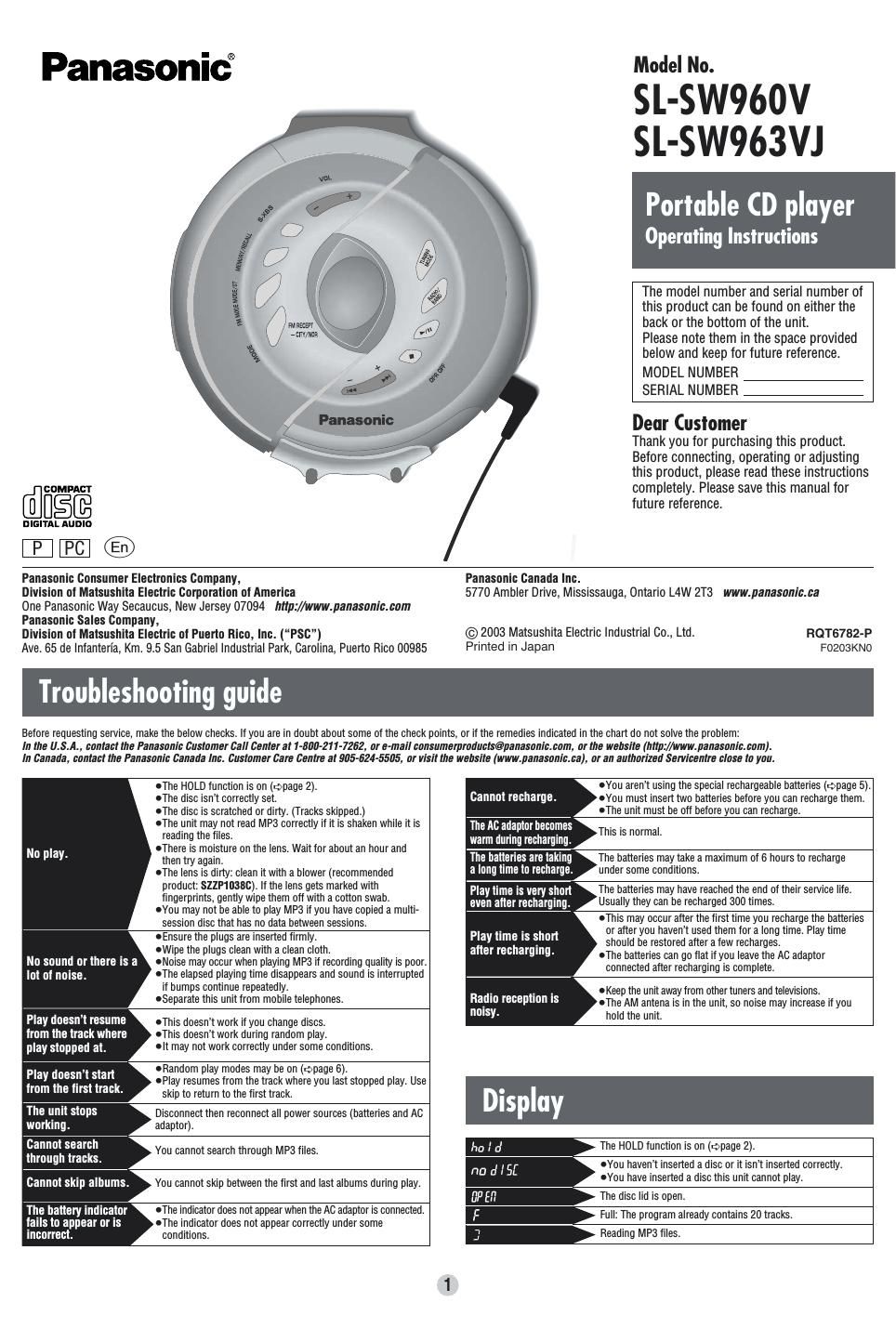Panasonic sl sw 960 v owners manual
This is the 8 pages manual for panasonic sl sw 960 v owners manual.
Read or download the pdf for free. If you want to contribute, please upload pdfs to audioservicemanuals.wetransfer.com.
Page: 1 / 8
